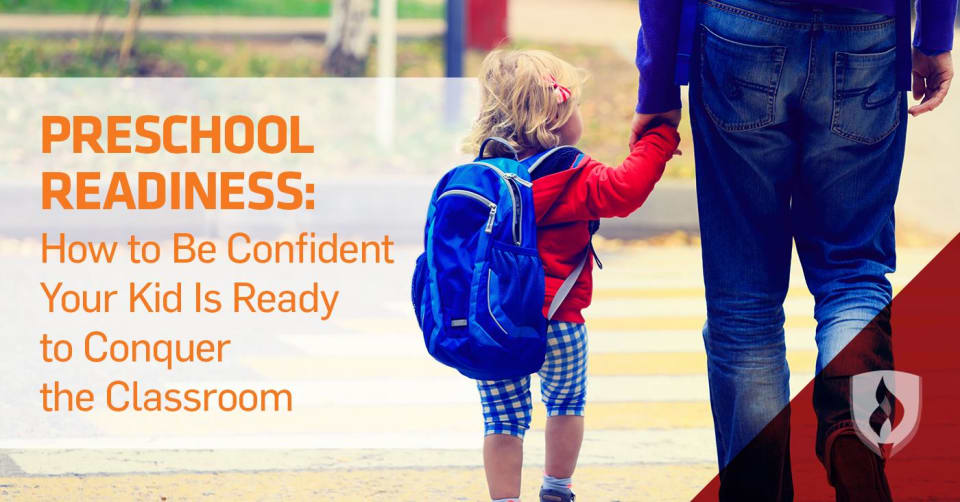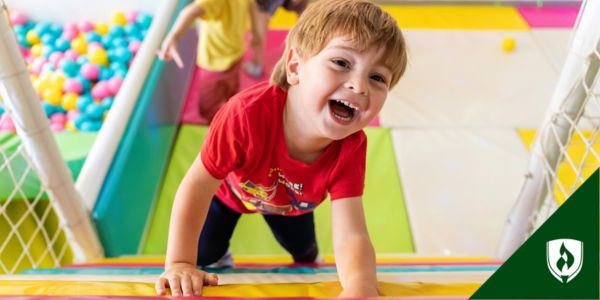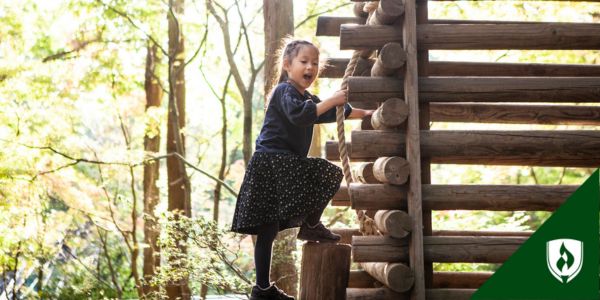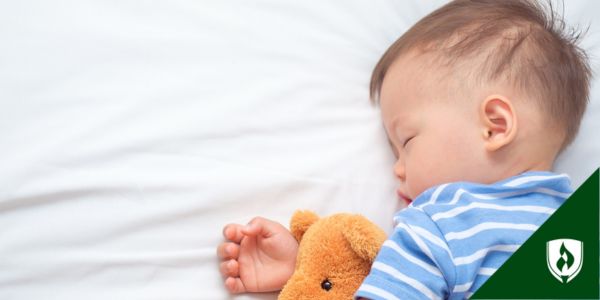Preschool Readiness: How to Be Confident Your Kid is Ready to Conquer the Classroom
By Ashley Brooks on 05/09/2017

Sending your child to preschool can be a nerve-wracking experience—not just for your child, but for you as a parent! You want what’s best for your kids, and that includes setting them up for success from the very beginning. This leads to one question that lurks in many parents’ minds: What if my child isn’t ready for preschool after all? Will they need to redshirt?
The good news is that no child is going to be kicked out of preschool because they don’t know their numbers and letters yet. “The vast majority of preschoolers are ready because preschool is a very forgiving time period,” says Dr. Valaida Wise, Head of School at the National Child Research Center. “The expectations are broad because so much growth happens.”
Preschool readiness is more about emotional readiness than a specific skillset. If you recognize your child in the following signs of preschool readiness, chances are good that they’re ready to tackle the preschool environment.
7 signs your child is ready for preschool
1. They can follow simple directions
Being able to follow one or two-step instructions is a good sign your preschooler can handle classroom expectations, according to Dr. Wise.
Teachers need kids to follow directions so there isn’t chaos in the classroom, but they also understand that young kids can’t follow a huge string of complex instructions. If your little one can follow your basic commands throughout the day, they’ll do just fine at preschool.
2. They can handle being away from you for short periods of time
The most stressful part of your child’s transition to preschool might be fear or separation anxiety. You certainly aren’t alone in worrying about how your child will handle being dropped off that first day of school.
It’s normal for a child to cry for a few minutes after you say goodbye, but if they continue to be upset throughout the day, they may not be ready to take on a whole day of preschool without you. Help your child prepare to be away from you by telling them about how their new routine will go and reassuring them that you’ll be back to pick them up after a fun day of learning with friends.
3. They can focus on a task
Three- and four-year-olds aren’t known for their long attention spans. Luckily, preschool is the perfect place for them to hone their focus before entering kindergarten.
Having at least some ability to focus before entering preschool will help your child make the most out of classroom activities and continue to develop their concentration skills, according to Mary Ann Kemp, creator of Playroom Prep.
4. They want to play with other kids
“Preschool is a time of significant growth in the area of social-emotional development. So first and foremost, the child needs to be interested in engaging with their peers,” Dr. Wise says.
Does your child smile, wave or greet other kids in the park or at the grocery store? This could be a sign your child is ready to make friends and play with others in the classroom.
5. They have basic self-care skills
Teachers will be available to help kids when needed, but your child should be able to handle the basics of taking care of themselves while at school, advises Candi Wingate, president at Care4hire. That means having skills like putting on their own coat and other cold-weather gear, taking their shoes on and off, feeding themselves and cleaning up their toys.
Even if your child might still struggle with a few of those things—lining up a coat zipper takes some fine-motor skill, after all—they may still be fine as long as they know how to ask for help.
6. They’re potty trained
Not all preschools require students to be potty trained, but Wingate recommends this as a skill that will help children to not feel behind compared to their peers. After all, no child wants to be the last of their friends still wearing diapers!
You can encourage potty training if your child is showing signs of readiness by introducing her to a potty chair or buying new “big-kid” underwear.
7. They know what to expect in the classroom
It’s natural for kids to fear the unknown. You can help set your child up for success by preparing them for the preschool experience. Wingate recommends reading books about preschool with your child and introducing activities like identifying colors and singing the alphabet song.
“Helping your child master these basics will ensure that they don’t not feel academically behind the rest of the children in preschool,” Wingate says.
Ready or not?
Now that you know these signs of preschool readiness, you can be confident that your kiddo will flourish in the classroom. But what should you do if your child isn’t meeting some of these signs?
“Children should not wait another year before beginning school,” Kemp says. Instead, she recommends seeking out early intervention with a specialist and repeating preschool if necessary. You can also use at-home resources to work on the basics with your child before they get to the classroom.
There’s no doubt that preschool sets the foundation for kids’ educational careers as well as providing social and emotional growth. For more proof that the preschool years matter, check out these 4 Reasons You Can’t Ignore Early Childhood Education.
RELATED ARTICLES:




